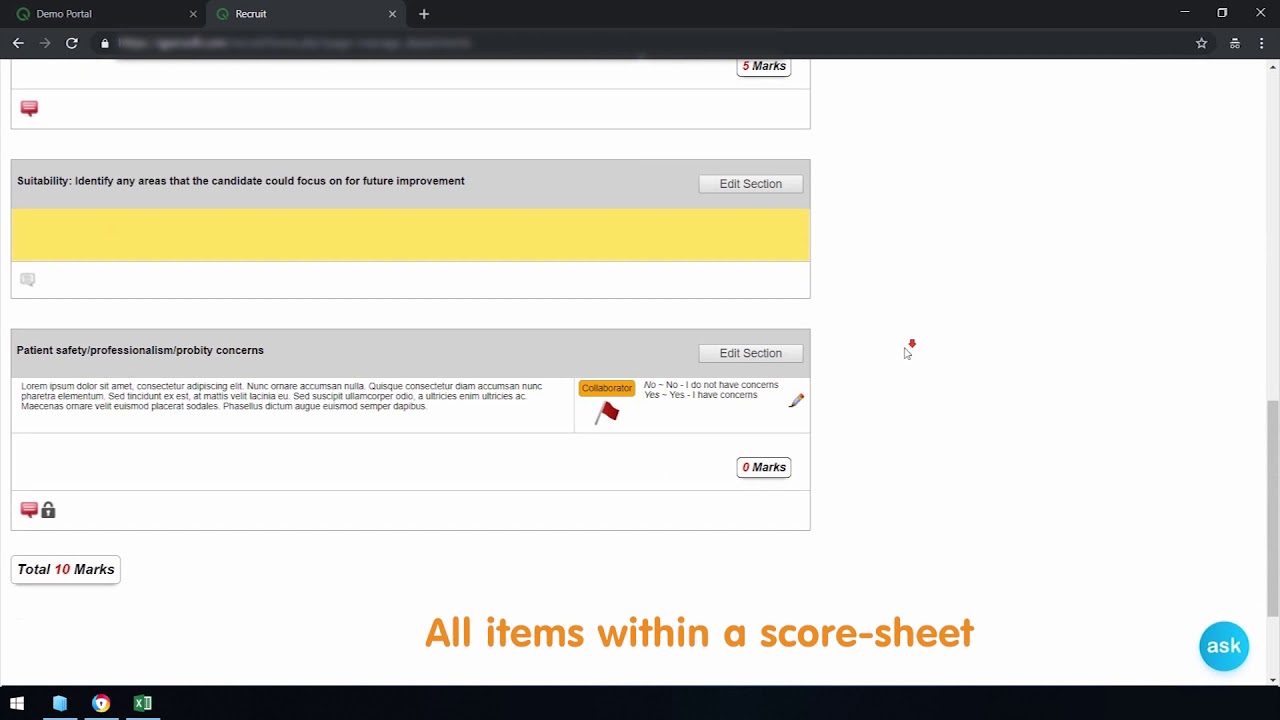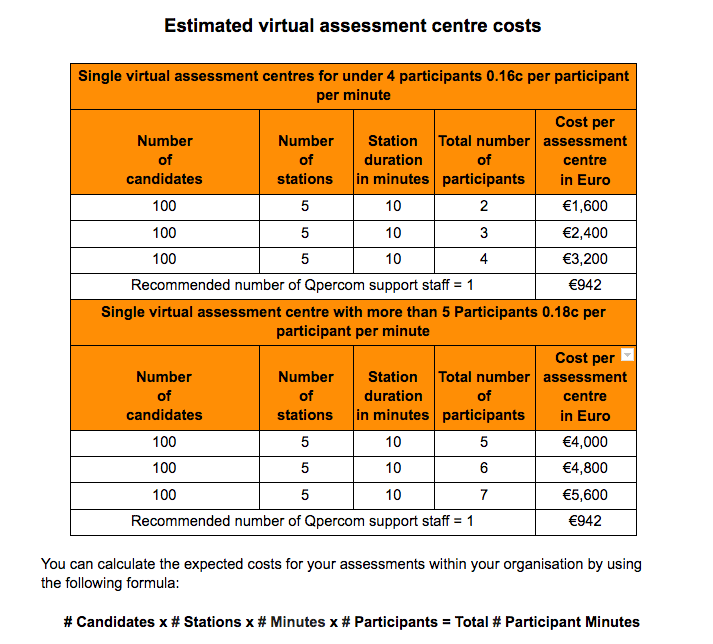Introduction to Virtual Assessment Centres
The COVID-19 pandemic has changed the way we interact with others in a face-to-face setting and many practices that were previously considered normal have now been restricted. In education, learning and examinations have moved online. In the world of business, offices lie empty with colleagues interacting online using video technology.
Recruiting new staff has proved another challenge that companies are now faced with. Assessment centres are used by many large employers around the world to test candidates on their skills and suitability for the job. They normally take place over one or more days at a nominated venue.
Assessment centres are popular with companies who recruit graduates straight from university. They are also common as part of large-scale volume recruitment in the public service to hire police officers, healthcare workers and military personnel.
With restrictions in place around the world to prevent people gathering indoors, recruiters are now looking at online solutions to ensure that remote assessment centres can be facilitated with the help of video technology.
There are many platforms out there that can handle multiple mini interviews (MMIs) online but there are a number of things to consider before choosing the technology to power your virtual assessment centre.
What Technology Is Available For Virtual Assessment Centres?
Well-known multi-use platforms like Zoom, Google Meet (formerly known as Hangouts) and Microsoft Teams are being used by recruiters already to stage one-to-one video interviews. According to the BBC, use of Zoom jumped 30-fold in April 2020, as the coronavirus pandemic forced millions to work, learn and socialise remotely.
Zoom allows breakout rooms so candidates can enter various stations to be assessed but it’s up to the examiners to score candidates offline using the traditional paper methods or by introducing a secondary e-assessment platform to run alongside Zoom.
Microsoft Teams, another popular software for video calls, has added a ‘Quiz’ feature for assessment of participants but it’s unlikely to be fit-for-purpose for assessment centres and better suited to informal video calls in the workplace as part of an online social event. Google also has a polling Q&A feature that allows participants to choose their preferred option for a multiple-choice question.
Qpercom Recruit is a software platform purposely built for virtual assessment centres and offers video technology, psychometric analysis (or aptitude tests), instant results and feedback, integrated digital score sheets and capacity to run a large number of stations for fluid multiple mini interviews as part of volume recruitment. A number of large public sector organisations in the United Kingdom and Australia have chosen Qpercom Recruit as their preferred solution for online recruitment.
Choosing The Best Candidates
Companies that use assessment centres can save on costs, time and administrative burden by choosing technology that offers both video interviews and data-driven e-assessment as standard.
The main disadvantage of using a platform, like Zoom or Microsoft Teams, that only offers video meetings to conduct an assessment centre is that companies are still relying on paper-based score sheets and marking to assess candidates. This adds to administrative burden and slows down the recruitment process as recruiters review paper notes, scores and try to recall interview performance. There is also a certain amount of manual logistics required to move students from station to station, so that they can be assessed by different interview panels.
With Qpercom Recruit, students are moved automatically from one station to the next so the flow of the assessment centre is smooth. The assessment centre is controlled through a live administrative control panel, with station progress updates. Examiners and interviewers can mark and score each candidate’s performance in relation to each question they are asked within the platform as the interview takes place.
At the end of the virtual assessment centre, Qpercom Recruit will automatically analyse the performance and scores of every candidate that participated in the assessment centre and rank the candidates, allowing the recruiter to easily highlight who the best candidates are. The hiring decision then becomes straightforward, and importantly, data-driven and evidence-based.
This saves a huge amount of time and means that the decisions made following a virtual assessment centre are made within hours and days rather than weeks or months.

The assessment module in Qpercom Recruit’s software for video interviews
Cost
Cost will be a deciding factor for many businesses when choosing technology for a virtual assessment centre.
Undoubtedly, by choosing to stage an online assessment centre, a huge amount of money will already be saved on things like venue hire, catering and expenses.
According to researchers at the University of Sydney, over $50,000 in costs were saved by an organisation who moved an international assessment event (using the MMI format (multiple mini interviews)) which took place in a face-to-face setting in 2019 to an internet-based remote event during the COVID-19 pandemic in 2020.
Different platforms have different pricing models which may influence your decision to invest in virtual assessment technology.
Zoom, Microsoft and Google all charge on a per user basis and have annual fees regardless of how often you use their platforms for assessment. The additional administration time needed to run a virtual assessment centre with these off-the-shelf products also comes at a cost, especially when something goes wrong.
Qpercom charges per assessment for Recruit so companies only pay for the number of assessments managed by the system and the number of video minutes accrued during video interviews within the platform.

It’s worth reviewing the features on offer by each platform and the support available, along with the costs before choosing which platform is the best fit for your assessment centre.
Making the decision
Companies who are still unsure what technology to use to run a virtual assessment centre should consider how many solutions they are going to need to facilitate the recruitment process and what the administrative burden will be by choosing a platform that only solves part of the challenge at hand.
Cost is an important deciding factor but don’t forget how much money is already being saved by staging an assessment centre online rather than in a face-to-face setting.
Other questions to address during the decision process include:
- How many candidate interviews can the platform handle?
- How many different interview stations can be set up?
- Can the platform help us make a decision on hiring?
- Does the platform offer personalised customer support in the event of something going wrong?
If you have considered cancelling an assessment centre due to the COVID-19 pandemic, start evaluating all of the platforms that can help your business stage it virtually.
It’s possible for your business to maintain recruitment continuity by choosing the right technology for your virtual assessment centre so that you can choose the best candidates for the job.
Run a virtual assesment centre with Qpercom Recruit – request a demo now
[hubspot type=form portal=3267479 id=593c7538-ab88-46f9-afc4-74b1237270db]





























